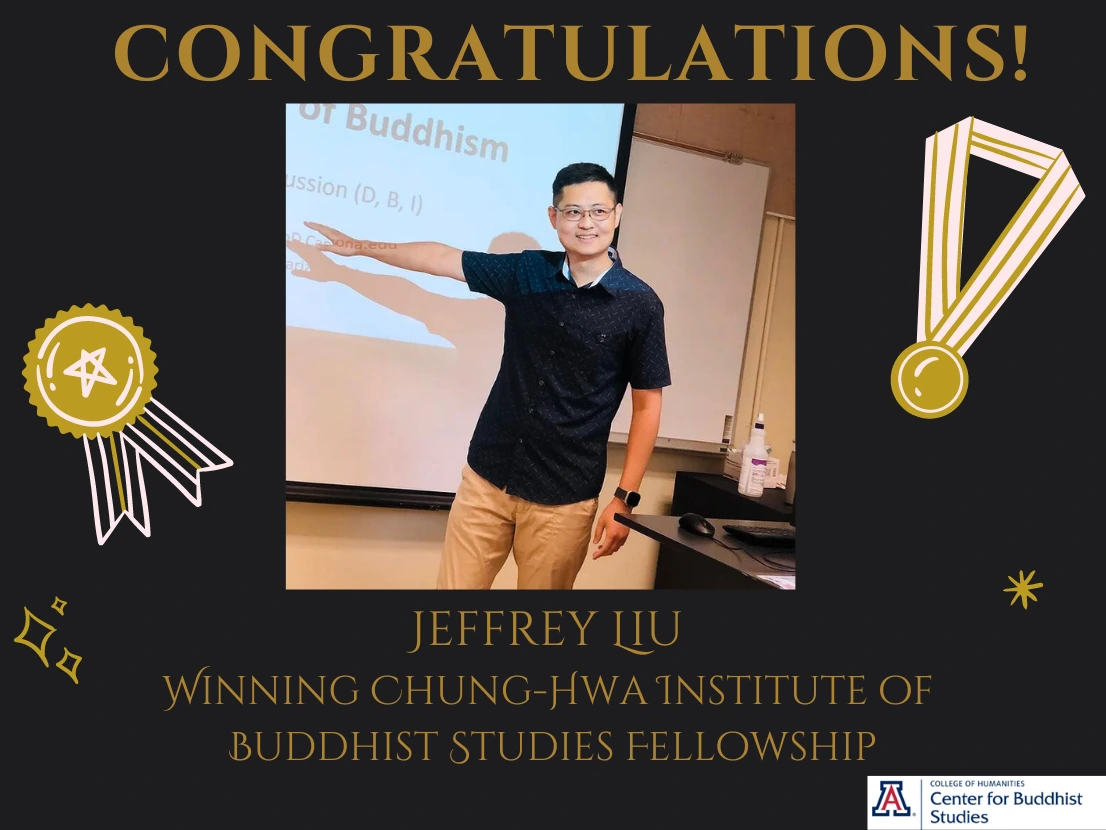
Congratulations to Jeffrey Liu, a PhD candidate from the Department of East Asian Studies and a junior fellow at The Center for Buddhist Studies at The University of Arizona, for winning a fellowship for graduate students by the Chung-Hwa Institute of Buddhist Studies for his dissertation project, titled “Mapping Buddhist Temples in Late Imperial Hangzhou: A Regional Study of the Buddhist Monastic Gazetteer Wulin Fanzhi.”
His dissertation examines the functionality of Buddhist temples envisioned by different social stratifications in premodern Hangzhou drawing from the Monastic Gazetteer of Hangzhou (Wulin Fanzhi). While most studies on Chinese Buddhist institutional history concentrate on in-depth diachronic analysis on specific locations, his dissertation suggests a digital approach to study Buddhist institutionalism and the society via examining Buddhist temples collectively with historical GIS and spatial analysis, challenging the current atomistic study of individual temples. This study contributes to three major academic inquires in East Asian studies: 1) the evolution of a centralized imperial authority that grew from China proper to encompass Greater China, illustrating state-building process; 2) the rise of regional influence, anchored in the gentry society, which spurred extensive intellectual dialogues across Asia; and 3) the emerging literary contributions from previously overlooked grassroots communities, crucial in revitalizing Buddhism. By arguing the significance of the Wulin Fanzhi, he employs three methodologies to foster this approach: 1) history, analyzing religious, sociopolitical, and intellectual history in Buddhist temple records; 2) social sciences, highlighting the role of premodern business models—including travel, printing technology, and cartography—in the resurgence of Buddhism; and 3) digital humanities, using text-mining for the systematic organization of the Wulin Fanzhi and GIS for imparting a spatial perspective, revealing micro-historical insights.
See more about Jeffrey Liu at his E-Portfolio: www.jeffreyliu.online

